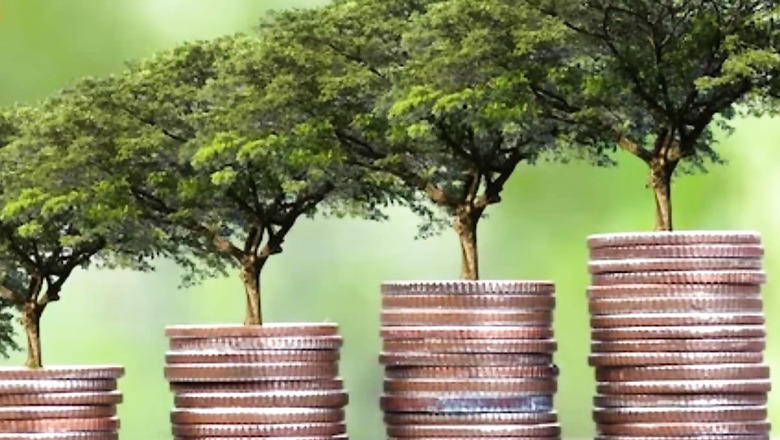
views
The splendour of the pre-wedding extravaganza of Anant Ambani and Radhika Merchant has somewhat eclipsed an important fact: Today, it is no longer sinful or opprobrious to lavishly celebrate an event in India. Just as povertyphilia spreads poverty, prosperity begets prosperity. It makes sense to celebrate prosperity It was his way of saying, ‘To get rich is glorious.’
Deng Xiaoping, architect of economic reforms in China from 1978 to the early 1990s, actually said that. In India, however, saying nice things about becoming rich is politically unpopular; the focus is mostly on poverty, the poor, the measures to remove or reduce poverty, welfare schemes, the delivery mechanism, and so on. Until very recently, so focused were our political masters on the distribution of wealth that they forgot a simple fact: wealth cannot be distributed if not created.
Yes created. Wealth is not something that was lying somewhere which some crafty people saw and grabbed and became rich, deviously excluding others who became poor. The prominent film lyricist, Sahir Ludhianvi, wrote in a 1950s song, “Jitni bhi buildingen thi, sethon ne baant li hain/Footpath Bambai ke hain aashiyaan hamaara” (Moneybags have distributed all buildings among themselves, while we have been forced to live on footpaths). Sahir was a good poet but also a communist, so his assumption is wrong; it was not that the rich found buildings in a desolate Bombay and captured them; it was because of their riches that buildings, and everything else signifying wealth, came into being.
Our political and intellectual elites, however, want to bury these facts in the applesauce of sentimentalism and sanctimoniousness. For facts can be dangerous to the fiefs they have carved out for themselves in the name of helping the poor. The elites look for new forms of divinity to arrogate to themselves more powers—and find new deities in the digiriste concepts like social justice, diversity, and egalitarianism. In the Indian context, the most popular deity is poverty.
The elites didn’t have to look afar to find justification for their policies; they found it in a concept that was dear to Mahatma Gandhi—Daridra Narayana. He wrote in 1929, “Daridra Narayana is one of the millions of names by which humanity knows God who is unnamable and unfathomable by human understanding, and it means God of the poor, God appearing in the hearts of the poor.” Eventually, it came to mean ‘God as the poor’ or, even worse, ‘God as poverty.’
This was a godsend for the political and intellectual classes. In the name of poverty alleviation, uplift of the downtrodden, etc., they framed and implemented programmes that ostensibly helped the poor but actually enriched the intermediaries and others. In fact, they made the state a milch cow which benefited anyone who could tame it.
In the process, statecraft suffered grievously; over the years, it was reduced to an unending series of populist measures. The state, by becoming the vehicle of welfarism, decayed into a rickety structure that failed even in such basic functions of running administration and maintaining law and order. But this bothered neither the new kings nor the new Brahmins, as the two classes had entered into a symbiotic relationship. Both continued to pray at the altar to the new deity—poverty.
The new god was also a jealous one, brooking no rivalry from any other god. The votaries were zealous in equal measure, constantly adding applesauce to keep facts buried.
Unfortunately for the ancien regime, one of its own worthies, PV Narasimha Rao did a lot of digging to bring some of the facts to light. The old order, represented by the grand old party, never forgave him for the treachery—even after his demise: his body was not allowed to enter the office of the party he served all his life.
It is not surprising that the Narendra Modi government honoured Rao with the Bharat Ratna award, for PM Modi is one of the few politicians who emphasizes wealth creation. He talks about India making a $5 trillion economy, a developed country, and so on. This is a far cry from the poverty-perpetuating rhetoric and policies of the Congress-led United Progressive Alliance.
The story of post-liberalisation India is the journey from povertyphilia to wealth creation—and celebration of wealth. And, by the way, it is not India’s richest man who dares to have a big fat wedding. According to an official estimate, the domestic wedding industry is the fourth largest industry with annual revenue of Rs 4.74 lakh crore (2023). Which means employment for millions of people, thus quickening economic activity, creating more income, and spreading more prosperity. Just as povertyphilia spreads poverty, prosperity begets prosperity. It makes sense to celebrate prosperity.
The author is a freelance journalist. Views expressed in the above piece are personal and solely that of the author. They do not necessarily reflect News18’s views.
















Comments
0 comment